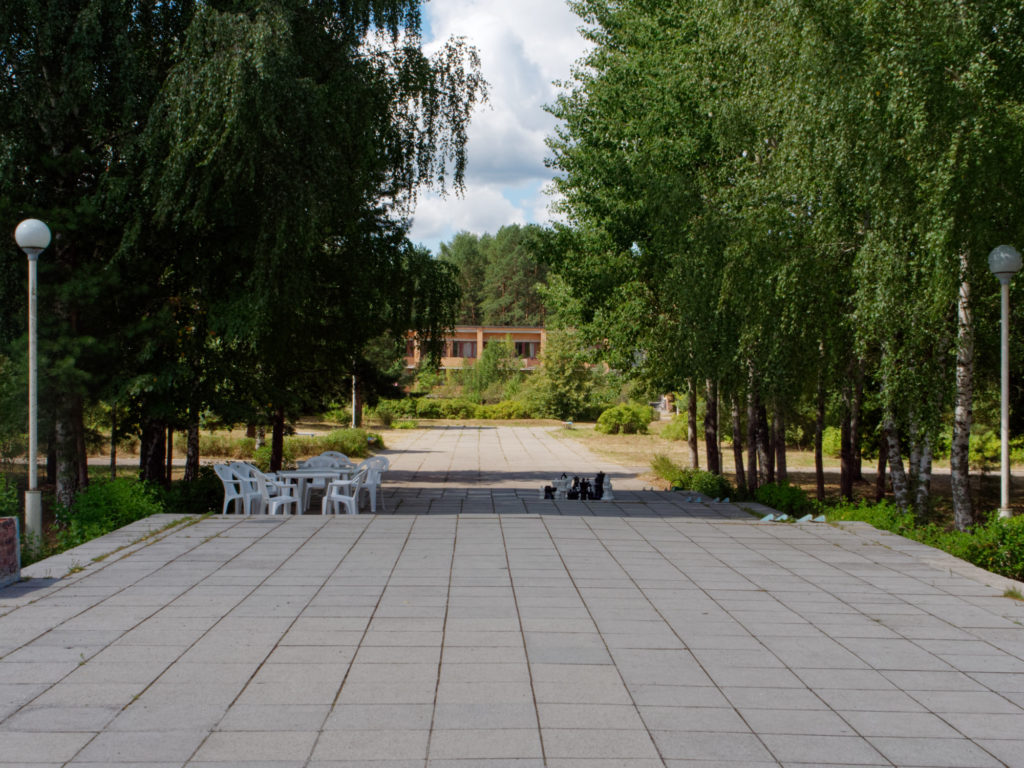Back to the USSR
The Ratmino pension is situated on the bank of the Dubna river, five minutes away from its intersection with the Volga river (Mother Volga, as Russians call it). It consists of several red brick buildings connected by tiled walks surrounded by pine trees. The main piece of this typically Soviet ensemble is the main building with a conference hall on the second floor and a canteen on the first. Inside, on the stairs from the first floor to the second one — a half century old photograph with nuclear physicists discussing a sketch of some experimental installation.
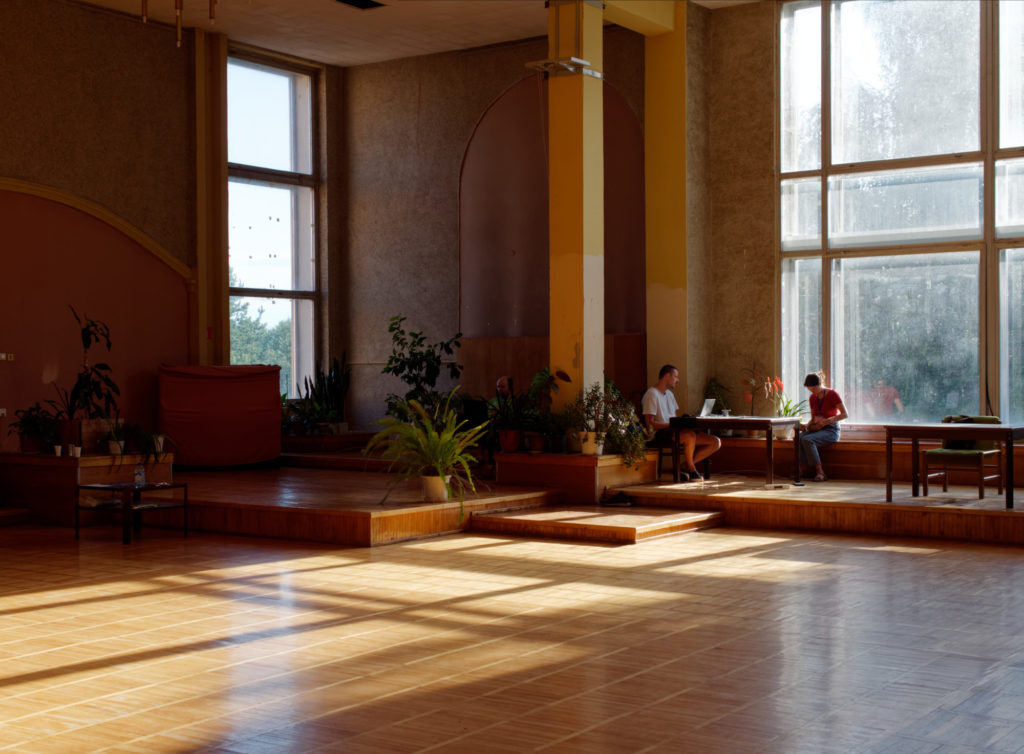
Ratmino is a pension that served in Soviet times to welcome for vacations some of the several thousand scientists and engineers working in the Joint Institute for Nuclear Research in the city of Dubna.
Not much changed here since those times, says Grigory Merzon, main organizer of the Summer School Contemporary Mathematics, the menu in the canteen has been maintained since the sixties, that’s for sure!”
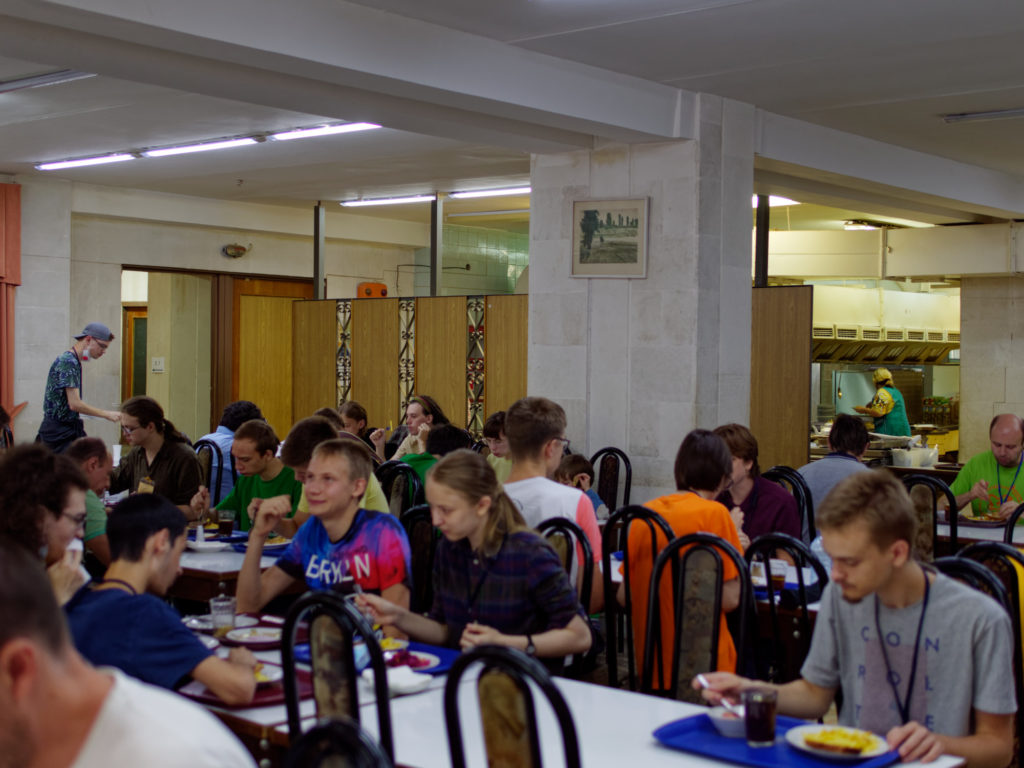
Positive chain reaction
The Summer School Contemporary Mathematics (or simply “Dubna” — which may be confusing as it is also the name of the city where the school is held) celebrates its twentieth birthday this year. Starting 2001, Russian academy of sciences, Steklov’s Mathematical Institute in Moscow, Moscow Department of Education and Moscow Center for Continuous Mathematical Education helped to put this school in place. Every year, at the end of July, not nuclear physicists but boys and girls between sixteen and nineteen years old walk (or run) along the alleys of Ratmino with their notebooks, from one intense mathematical course to another.
The courses at Contemporary Mathematics school are thought by researchers in mathematics, and are proposed by packs of four classes of 72 minutes: a legend explains this peculiar timing by the length of video cassettes used at the beginning of the school, twenty years ago, to record the classes. In order to teach such a 4-lectures course, a pedagogue may stay for only four days in Ratmino but most of the course teachers come for the full two weeks stay, often with their families — professors love Contemporary Mathematics school as much as students do!
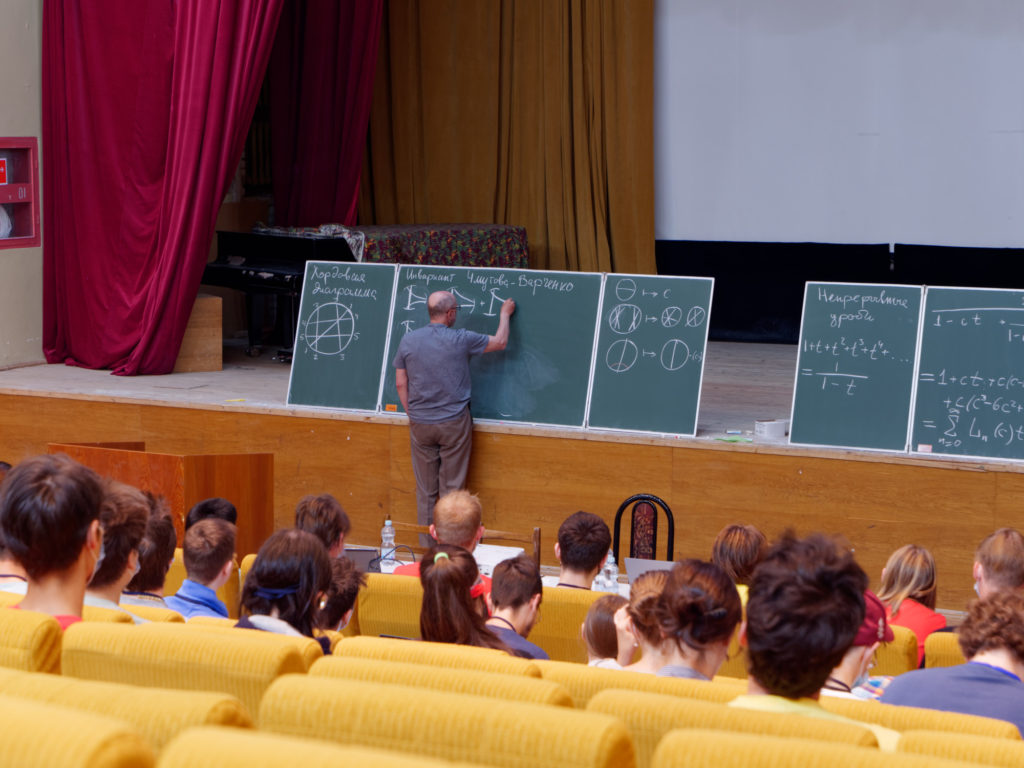
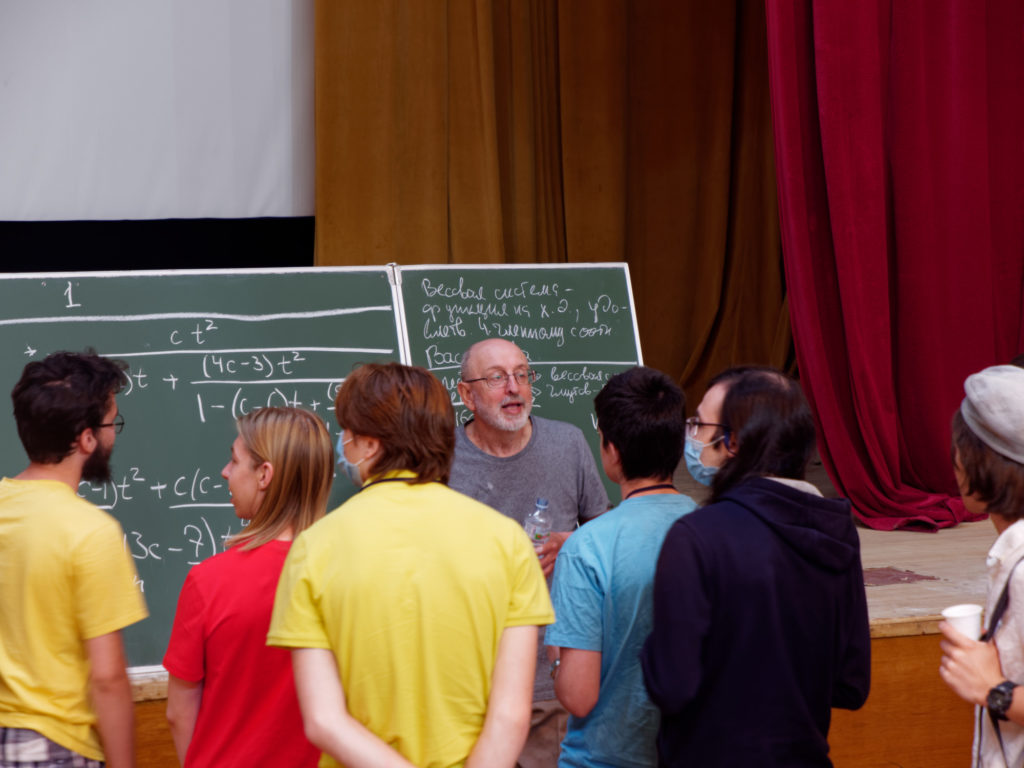
Gaiane Panina is a researcher at the St. Petersburg Department of Steklov Mathematical Institute of the Russian Academy of Sciences. Every year, since 2005, Gaiane is coming to Dubna with a course. She missed it only once, in 2019, when her mother broke her hand and needed to be taken care of.
Before coming here the first time, I would doubt a lot. First, I didn’t know anybody here. Second, I was thinking — why drag myself somewhere in summer when I can just stay calmly at my dacha? I only heard from my colleagues in St Petersburg that Dubna school was a wonderful place. Finally, in 2005, I decided myself — why not go there and see for myself? And then I went… and this school happened to be an incredible place that completely psychologically corresponded to me and elevated my spirit. What did I love here? Absolutely everything!, Gaiane says with an open smile. The best are the students, they are chosen on motivation letters, and they are very bright and very interested. They listen to me with so much interest that it comes back to me and fills me up with enthusiasm. So I am even happier to speak about math, and then they are even more interested — Dubna creates this positive chain reaction!”
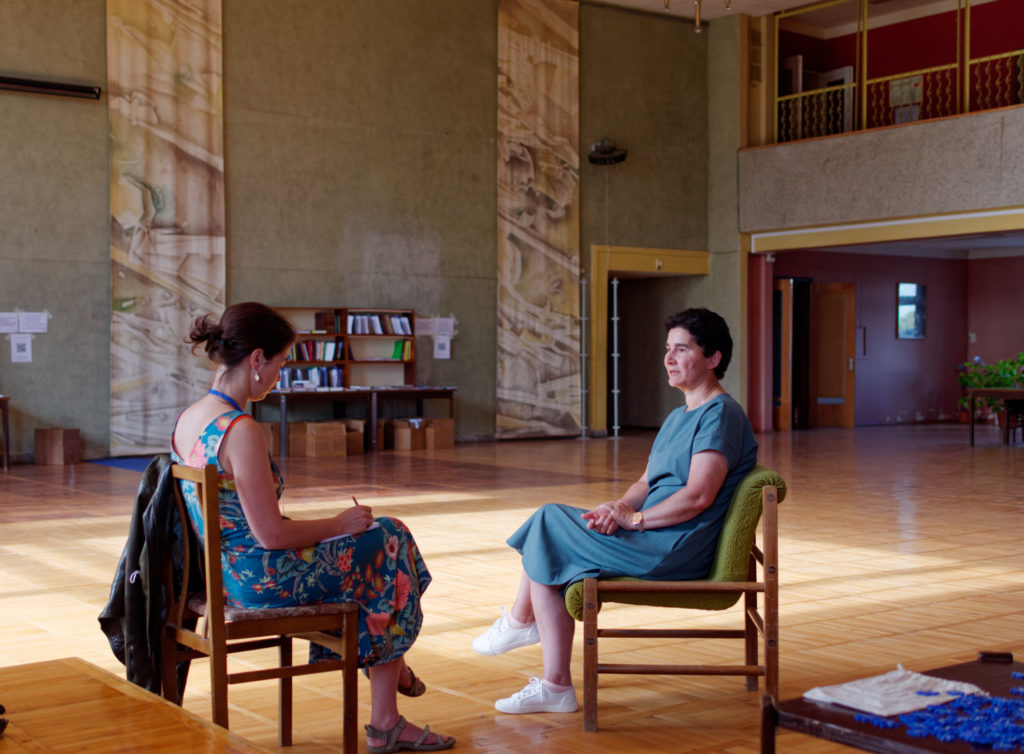
Choice of topics
Since 2005, Gaiane proposed fourteen courses in Dubna on different subjects in geometry and topology: courses on polyhedrae (their algebra, their combinatorics, integer points in convex polyhedrae, and famous polyhedrae to name a few), introduction to toric varieties and algebraic geometry, courses on topology (Euler class, discrete Morse theory) and recently, on Teichmüller theory.
In life, I get bored to do the same thing for a long time. And I like to teach the subject that I am working on at the moment as a researcher — I didn’t forget it yet, I remember the details, so I can properly choose a piece of it which is easy to explain. Probably, I am not a correct pedagogue — even if it is the same course, I would never teach it in the same manner! Moreover, in such a wonderful school here in Dubna, I consider it a mauvais ton to tell the same thing every year. Some students will come back next year — you do not want them to be bored!”
This year Gaiane presents a course around Thurston’s train-tracks. “Why this course? Because it is a very nice topic, with many beautiful pictures in it!,” she smiles.
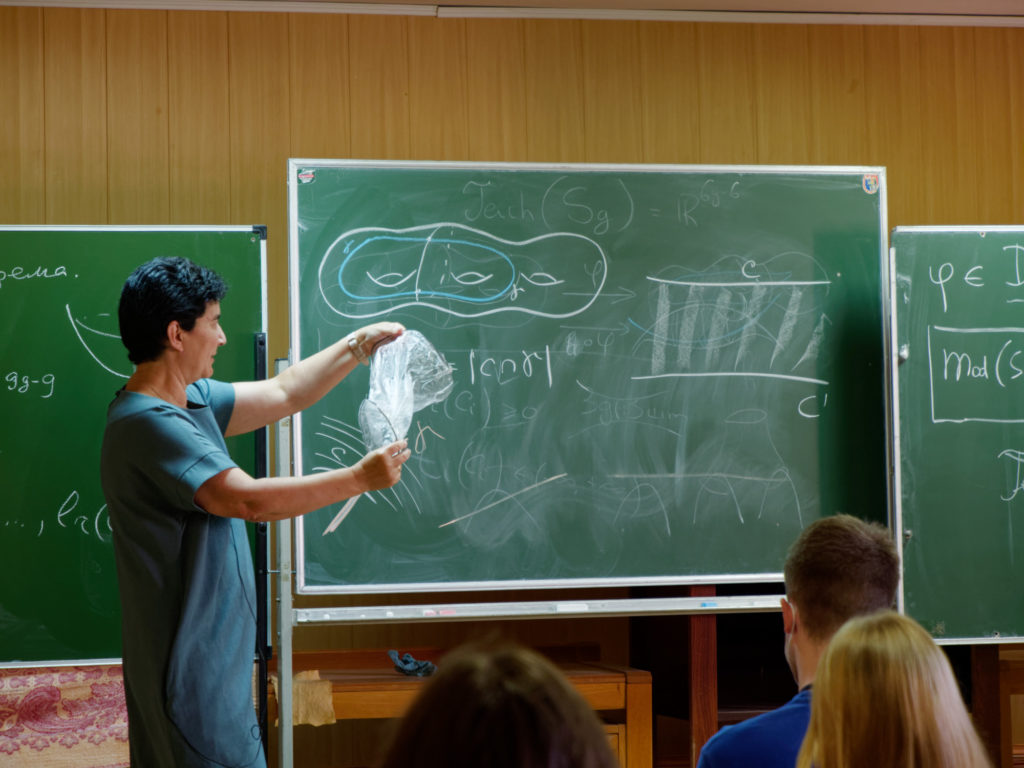
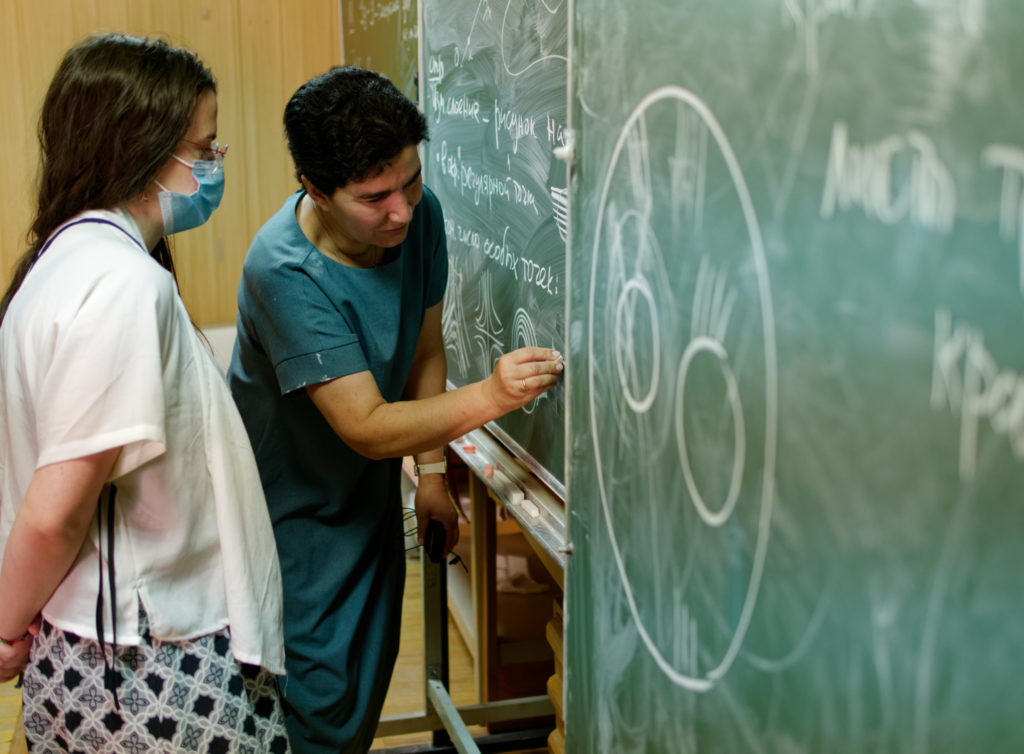
A small life in itself
In Dubna, one can hang out and speak about mathematics with such mathematicians that in real life are not met in such… concentration,” Gaiane laughs.
And finally, one can just relax in Dubna!, she adds. There are so-called “pedagogical councils” where one can sit with other professors, drink wine in some room around a small table and talk about life. I love speaking with students after classes, on the bank near the river, for example. I want to be able to do everything here: do my lectures, go to the lectures of others and learn maths from them, listen to musical lectures, participate in the poetry evening, and be on time to the pedagogical council! For myself, each time of these ten days — are like a small life in itself.”
